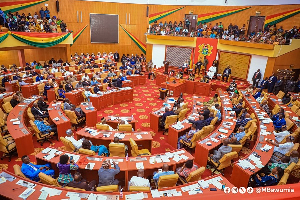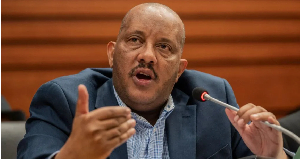The IDP Foundation, Inc. (IDPF), dedicated to encouraging and supporting sustainable solutions to complex global issues, is disbursing urgent relief funds to the most vulnerable low-fee private schools that have participated in their IDP Rising Schools Program (IDPFRSP) in Ghana.
Distribution of the urgent funding was based on a system of independent vulnerability ratings applied to all schools by Sinapi Aba Savings and Loans, as well as direct applications provided by the school proprietors and findings from a preopening assessment commissioned by IDPF and performed by Associates for Change, a research and consulting firm based in Accra.
The assessment was commissioned to investigate the impact of the COVID-19 pandemic on school operations, and identify the most vulnerable schools and the key areas of support needed to reopen and stay open for their first semester back to school in over 10 months.
A follow-up assessment is planned for March 2021 to determine how to best strengthen the resilience of schools, operationally and academically, against future crises. Additional COVID-19 relief funding to build resilience at IDPFRSP schools will be determined and disbursed by midyear 2021.
“Affordable private schools play an essential role in developing countries,” said Corina Gardner, Executive Director of Education at the IDP Foundation. “It’s absolutely critical that these schools and the dedicated proprietors who run them have the support they need in recovering from the COVID-19 pandemic.”
“If these schools are not given the support needed to continue operations during this time of crisis, the knock-on effect to the public school system, which is unable to absorb additional students, and resultant growth in the out-of-school population is an unacceptable outcome, and something we must do everything possible to prevent.”
The relief effort by IDPF, facilitated by Sinapi Aba Savings and Loans, IDPF’s microfinance partner in Ghana, is twofold. Firstly, it is in the form of a direct payment to Sinapi Aba of interest accrued on proprietors’ loans during the 10-month school closures when repayments had been put on hold.
During the closures Sinapi Aba paused their loans, rescheduling repayments to after reopening, but as is standard practice, the loans continued to accrue interest during this extended period.
The higher monthly interest payments attached to proprietors’ repayments once schools reopened and the loan schedule resumed would have posed a significant financial burden to proprietors who, with no income for the best part of a year, remained responsible for expenses including teachers’ salary arrears and increased maintenance needs.
IDPF saw this relief—through payment of accrued interest on loans—as crucial in supporting proprietors determined to reopen their schools, and 100% of the schools with active loans from the IDPF Rising Schools Program have been awarded interest relief.
Secondly, 92 schools so far have been awarded needs-based grants to support their reopening in response to needs identified by school proprietors in assessments conducted by Sinapi Aba.
The most common reopening need was support of teachers’ salaries, a primary need cited on 66% of grant applications, meaning these grants will impact more than 900 teachers. Other identified needs included addressing neglect of buildings and vehicles during the shutdown; replacing classroom furniture and teaching/learning materials that went missing during closures; and purchasing personal protective equipment and canteen items.
In addition, 95% of the proprietors noted depletion of operating capital as a significant effect of school closures due to the COVID-19 pandemic.
The education entrepreneurs who started these independent low-fee private schools may be running a business, but they rarely make a profit and often struggle to break even. This hasn’t made them any less determined to serve their community, which is why these grants are so important.
Samuel Nunoo Mensah, the proprietor of Holac Day Care Center, said, “Had it not been for the IDP foundation grant, the school would have been closed by now. Because I had no idea of how I was going to reopen and manage the school again.“
And managing schools in this new era of recovery comes with new challenges, as Abubakar Saddick Khalid, the administrator at Divine Covenant Academy, said: “The grant has served a great purpose because when schools resumed, we didn’t have money to purchase the protective equipment for COVID-19. If we had not received the funds from the IDP Foundation, I think we would have found ourselves wanting in terms of the equipment for the children. Even though we would have done it, it would have taken some time.”
Daniel Aboagye, a Branch Coordinator from Sinapi Aba’s Mataheko branch, who has been working directly with the proprietors on their needs assessment, said, “It has been a great feeling being able to extend this much-needed help from IDP Foundation to the proprietors of the Rising Schools Program. When we informed them of the news, they were so overwhelmed, there were screams of joy, deep breaths of relief and many, many tears of joy. These proprietors are determined and strong and would have tried to find a way to reopen their schools, so naturally these grants really mean a lot to them.”
After a ten-month shutdown, public and private schools in Ghana started reopening in January, with kindergartens, primary schools and junior high schools reopening on January 15. It was therefore key for IDPF to get this relief funding out to the schools as soon as possible to ensure that they could welcome students back quickly and safely.
“Following conversations with proprietors from the Rising Schools Program, it became very clear that financial relief was needed to ensure that these independent low-fee private schools could reopen,” said Stephen Caleb Opuni, Country Director for the IDP Foundation in Ghana.
“It is our upmost priority to help these schools now so that during this recovery period and beyond they can continue educating children whose parents so heavily rely on them. What is also clear is that as we all think about the growing need for resilience in order to future-proof the education of the next generation, we must continue to develop sustainable edu-finance models that can exist within the government’s education framework. ”
Regional News of Tuesday, 23 February 2021
Source: Wells Narrative Group
IDP Foundation supports reopening of highly vulnerable independent low-fee private schools
Entertainment












